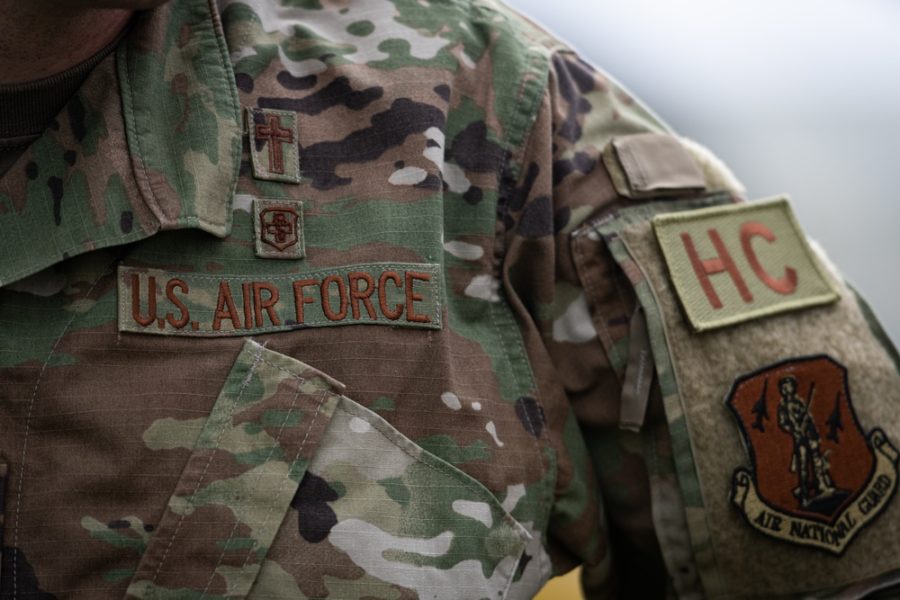Department of the Air Force policy calls for a decision within 30 days on requests for religious exemptions to mandatory vaccines from Airmen and Guardians within the continental U.S. But with nearly 5,000 Active-duty Airmen and Guardians seeking religious exemptions to the COVID-19 vaccine, the department faces an uphill battle in trying to sort through every request within that timeframe.
“When the process was originally established, they’re thinking they’re getting one or two, … they weren’t anticipating thousands of people,” Air Force spokesperson Ann Stefanek told Air Force Magazine, adding that the 30-day deadline remains the department’s goal.
The current pace would seem to be well short of that—on Nov. 3, the day after the initial deadline, the Air Force reported 4,933 individuals seeking religious exemptions. A week later, that number had dropped only 20, to 4,913.
However, the only data right now is coming from lower-level commanders, Stefanek said. Numbers from the major commands should start coming through in the next few weeks, she added.
According to Department of the Air Force Instruction 52-201, a Religious Resolution Team of commanders, chaplain corps personnel, medical providers, judge advocates, and other subject-matter experts works evaluate requests before making a recommendation to the deciding authority. As part of that process, a chaplain conducts an interview with the person seeking the exemption.
DAFI 52-201 contains a checklist for chaplains to consult as part of that interview, asking chaplains to evaluate whether the person’s beliefs “seemed honestly, consistently, and sincerely held” based on five factors:
- Requestor is credible (consistently keeps tenets, practices, etc.).
- Requestor’s demeanor and pattern of conduct are consistent with the request.
- Requestor participates in activities associated with the belief(s).
- Other persons supporting the claim are credible.
- Request is supported by letter(s) of verification or endorsement from an organization espousing the beliefs, which are the basis for the claim.
The checklist also calls for the chaplain to discuss “alternate means of accommodating the practice” and to decide if the requestor “identified the substantial burden” of the Air Force rule that he or she feels infringes upon religious freedom.
Response to exemption requests are required within 30 days if the requestor is in the U.S. but 60 days if he or she is outside the U.S. or in the Reserve component. If the exemption request is denied, the Airman or Guardian can appeal to the Surgeon General of the Air Force, who must then respond within 30 business days.
The department has not yet approved any COVID-19-related religious exemptions.
Yet while the number of religious exemption requests declined only slightly in the first week since the deadline, the number of medical exemptions dropped noticeably, from 1,634 to 1,460. This was primarily due to a drop in temporary medical exemptions, such as those for pregnancy or while service members await consultations for other medical issues, Stefanek said.
The number of unvaccinated Active-duty service members declined by 213, from 8,486 to 8,273, while the percentage of Airmen and Guardians who are at least partially vaccinated rose by a corresponding 0.1 percent. Of the approximately 326,000 people in the Active-duty component, 97 percent are now at least partially vaccinated, with 96.2 percent of those having received the full dose.
Meanwhile, the number of Airmen and Guardians recorded as officially refusing the vaccine increased from 800 to 972 total.
Members of the Air National Guard and Air Force Reserve have until Dec. 2 to become fully vaccinated, the department previously announced.
